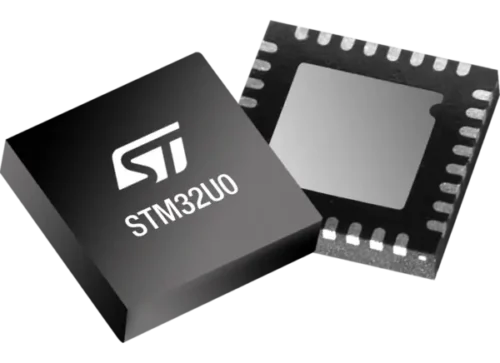The STMicroelectronics’s microcontrollers reduce energy consumption by 50%, minimize battery waste, and enable devices to run on harvested energy like solar power.

STMicroelectronics, a global semiconductor company, has launched a new line of cost-effective and energy-efficient microcontrollers (MCUs). The STM32U0 MCUs can cut energy usage by up to 50% compared to previous versions, leading to fewer battery changes, reduced environmental impact from discarded batteries, and enabling more devices to operate on energy harvested from sources like small solar cells.
As the world focuses on sustainability, technologies used in smart buildings and Internet of Things (IoT) applications play essential roles in efficient energy and resource management. STMicroelectronics’ microcontrollers are at the core of smart sensors and actuators, facilitating data collection, processing, and analysis and communicating with cloud-based applications. With billions of these MCUs already in use, the growth of smart environments will likely increase their demand significantly.
The microcontrollers usher in a significant improvement in energy efficiency thanks to their innovative design techniques and advanced manufacturing processes. Key features include deficient power consumption in standby mode and exceptional wake-up capabilities, which allow the MCU to maximize time spent in energy-conserving sleep modes, thus reducing overall energy use.
The company claims that a prominent customer in the security systems sector is leveraging the MCU in their security cameras to activate the device upon motion detection, enhancing surveillance capabilities while conserving energy. Another client has developed durable smoke detectors using the STM32U0. Additionally, Ascoel has incorporated this microcontroller into their water meters to efficiently handle energy-sensitive functions.
The microcontrollers provide an LCD segment display controller, helping devices like water meters, thermostats, smart retail labels, access-control panels, and factory automation systems reduce PCB costs. The MCUs include analogue peripherals such as analogue-to-digital converters, digital-to-analogue converters, operational amplifiers, and comparators. An on-chip system oscillator helps cut the bill of materials and save PCB space.
Developers have access to up to 256KB of Flash memory, options for up to 81 pins, and a core speed of 56MHz—suitable specifications for this class of device.






